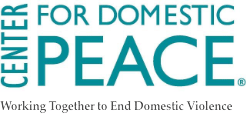Domestic Violence in Faith-Based Settings
All religious and faith communities have a vital role to play in addressing the issue of domestic violence. There are a growing number of resources for faith leaders to utilize both within their own faith denominations and in interfaith collaborations across faith communities. By growing their knowledge on this important issue, faith leaders will not only help to promote healthy relationships and families but, most importantly, help to save the lives of victims and children who are relying upon them for assistance.
Fulfilling the responsibility for the spiritual and emotional wellbeing of members, a faith-leader can:
- Speak out against domestic violence – make it a part of a sermon.
- Address behaviors that help condone violence against women and girls.
- Promote attitudes that contribute to equality in relationships.
Faith communities have a tremendous influence in people’s lives and can use it to engage in prevention strategies:
- Challenge behaviors that lead to domestic violence.
- Offer a framework for social justice – a culture free of violence.
- Partner with Center for Domestic Peace to assist with their prevention efforts.
- Use holidays and special events to raise awareness of domestic violence and send messages that counter it and promote peace and equality within relationships.
When religion or faith is a deeply-held belief, faith leaders can be a resource for victims who are trying to understand what is happening to them and plan for their future safety. A faith leader can:
- Help victims explore ways to escape a partner’s violence and abuse.
- Help those who abuse take responsibility for their actions.
- Connect survivors and abusers to organizations like C4DP.
A great online resource library on gender-based violence and its intersection with domestic violence can be found at the website from National Resource Center on Domestic Violence.
